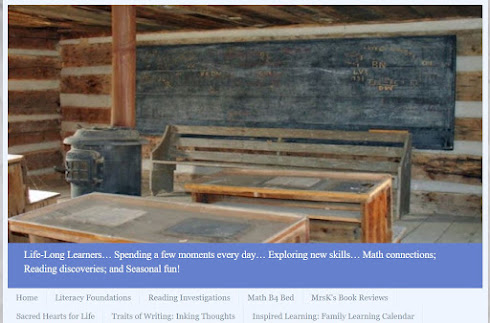
ISBN: 9780399246555
Publisher's Synopsis:
Twelve-year-old Lonnie is finally feeling at home with his foster family. But because he's living apart from his little sister, Lili, he decides it's his job to be the "rememberer" and write down everything that happens while they're growing up. Lonnie's musings are bittersweet; he's happy that he and Lili have new families, but though his new family brings him joy, it also brings new worries. With a foster brother in the army, concepts like Peace have new meaning for Lonnie.Told through letters from Lonnie to Lili, this thought-provoking companion to Jacqueline Woodson's National Book Award finalist Locomotion tackles important issues in captivating, lyrical language. Lonnie's reflections on family, loss, love and peace will strike a note with readers of all ages.
"I think it it's..."
Imagine Peace by Lonnie Collins Motion
MrsK's Review:
As a reader, there are always certain characters that speak into your heart. Those that you never forget as the years and titles move forward. As an educator, there are certain book discussions, in which your students are so engaged that you are touched with inspiration. Locomotion was one of those experiences. So when a new generation of learners wanted to read Poetic Novels, Locomotion was my first choice. As I created a list of titles, I was thrilled to discover Peace, Locomotion!
Lonnie, aka Locomotion, continues to hope that one day he will be old enough to be the guardian of his little sister Lili. He has continued his writing, only now he is writing hope-filled letters to Lili. His school life has changed, or maybe fallen back into a place less inspired. Yet, because of his academic slump, he has chosen to write Lili's letters to ensure that their memories of life before the fire won't fade away into a "grayness" that has become "real, real quiet" in their minds. He is gathering all of these letters into a box of "Before Time" for the time when Lili is once again living with him.
What is Locomotion's newest challenge? He has a teacher that believes he can't be a poet without being published. So many times, a small comment can cause a student to choose to disengage in ways that spiral out of control! Living in Miss Edna's home, Lonnie is met with a realization that in this foster location there are words like home, son, brother, and comfortable moments of love and support. Turning 12 will be a year of cherishing his before the fire life and learning to embrace his before "as a man" life unfolds. Will he remain hope-filled about his little sister's "new" before life?
Clyde is the friend that helps Locomotion regain his "for real" now life. Sometimes in life a stranger or someone who once seems like a foe, in reality becomes a life time friend. Clyde is honest. His honesty creates a "sounding board," a type of regulator for Locomotion. While Locomotion tries to come to terms with his new season of life, Clyde shares more about his own home. This form of bonding encourages Locomotion to move forward into an acceptance and freedom.
Through Locomotion's acceptance of his life with Miss Edna and her sons, he begins writing to Lili a "one true thing" for the day. These letters become an exposure to the depth of a "for real" family life. For the first time since the fire, Locomotion is now willing to accept that his little sister has a "for real" life in a family that he wasn't ready to support.
This sequel is as moving and inspiring as the first novel. The weaving of words, emotions, hopes, and acceptance portrays a realistic plot that creates an inner peace about how these characters are growing up. It is with much hope... that this reader eagerly waits Locomotion's next season...
MrsK
Lonnie, aka Locomotion, continues to hope that one day he will be old enough to be the guardian of his little sister Lili. He has continued his writing, only now he is writing hope-filled letters to Lili. His school life has changed, or maybe fallen back into a place less inspired. Yet, because of his academic slump, he has chosen to write Lili's letters to ensure that their memories of life before the fire won't fade away into a "grayness" that has become "real, real quiet" in their minds. He is gathering all of these letters into a box of "Before Time" for the time when Lili is once again living with him.
What is Locomotion's newest challenge? He has a teacher that believes he can't be a poet without being published. So many times, a small comment can cause a student to choose to disengage in ways that spiral out of control! Living in Miss Edna's home, Lonnie is met with a realization that in this foster location there are words like home, son, brother, and comfortable moments of love and support. Turning 12 will be a year of cherishing his before the fire life and learning to embrace his before "as a man" life unfolds. Will he remain hope-filled about his little sister's "new" before life?
Clyde is the friend that helps Locomotion regain his "for real" now life. Sometimes in life a stranger or someone who once seems like a foe, in reality becomes a life time friend. Clyde is honest. His honesty creates a "sounding board," a type of regulator for Locomotion. While Locomotion tries to come to terms with his new season of life, Clyde shares more about his own home. This form of bonding encourages Locomotion to move forward into an acceptance and freedom.
Through Locomotion's acceptance of his life with Miss Edna and her sons, he begins writing to Lili a "one true thing" for the day. These letters become an exposure to the depth of a "for real" family life. For the first time since the fire, Locomotion is now willing to accept that his little sister has a "for real" life in a family that he wasn't ready to support.
This sequel is as moving and inspiring as the first novel. The weaving of words, emotions, hopes, and acceptance portrays a realistic plot that creates an inner peace about how these characters are growing up. It is with much hope... that this reader eagerly waits Locomotion's next season...
MrsK
"I think if you imagine it....
Then it can happen,...."
Both titles are crafted with a character with heart,
true grit, and a voice that requires an audience.

Locomotion
Publisher's Synopsis:
When Lonnie Collins Motion "Locomotion" was seven years old, his life changed forever. Now he's eleven, and his life is about to change again. His teacher, Ms. Marcus, is showing him ways to put his jumbled feelings on paper. And suddenly, Lonnie has a whole new way to tell the world about his life, his friends, his little sister Lili, and even his foster mom, Miss Edna, who started out crabby but isn’t so bad after all. Jacqueline Woodson’s novel-in-poems is humorous, heartbreaking . . . a triumph.
Meet the Author:
 I used to say I’d be a teacher or a lawyer or a hairdresser when I grew up but even as I said these things, I knew what made me happiest was writing.
I used to say I’d be a teacher or a lawyer or a hairdresser when I grew up but even as I said these things, I knew what made me happiest was writing.I wrote on everything and everywhere. I remember my uncle catching me writing my name in graffiti on the side of a building. (It was not pretty for me when my mother found out.) I wrote on paper bags and my shoes and denim binders. I chalked stories across sidewalks and penciled tiny tales in notebook margins. I loved and still love watching words flower into sentences and sentences blossom into stories.
I also told a lot of stories as a child. Not “Once upon a time” stories but basically, outright lies. I loved lying and getting away with it! There was something about telling the lie-story and seeing your friends’ eyes grow wide with wonder. Of course I got in trouble for lying but I didn’t stop until fifth grade.
That year, I wrote a story and my teacher said “This is really good.” Before that I had written a poem about Martin Luther King that was, I guess, so good no one believed I wrote it. After lots of brouhaha, it was believed finally that I had indeed penned the poem which went on to win me a Scrabble game and local acclaim. So by the time the story rolled around and the words “This is really good” came out of the otherwise down-turned lips of my fifth grade teacher, I was well on my way to understanding that a lie on the page was a whole different animal — one that won you prizes and got surly teachers to smile. A lie on the page meant lots of independent time to create your stories and the freedom to sit hunched over the pages of your notebook without people thinking you were strange.
Lots and lots of books later, I am still surprised when I walk into a bookstore and see my name on a book’s binder. Sometimes, when I’m sitting at my desk for long hours and nothing’s coming to me, I remember my fifth grade teacher, the way her eyes lit up when she said “This is really good.” The way, I — the skinny girl in the back of the classroom who was always getting into trouble for talking or missed homework assignments — sat up a little straighter, folded my hands on the desks, smiled and began to believe in me.




No comments:
Post a Comment